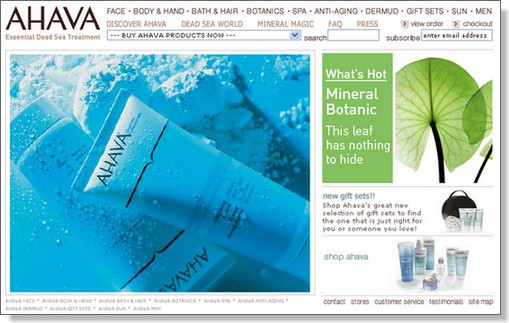The afternoon sun beats down on the rocky hills and quicksand pits that surround the still, gray-blue body of water, which is flanked by Israel and the West Bank on the west and Jordan on the east.
As its name implies, there’s little life in the Dead Sea. The water’s extraordinarily high salt content prevents fish and aquatic plants from living in it.
At first glance, it’s hard to see much economic potential in this parched, dusty landscape. But up the hill and across the narrow highway that hugs the Dead Sea, an Israeli company named Ahava (Hebrew for love) has built a small cosmetics empire out of the region’s elemental resources: salt and mud, reports CNNMoney.
It all began in 1988, when Ziva Gilad, a local spa technician, noticed female tourists bottling mud to take home. That sparked the idea for Ahava, and Gilad, along with partners from four nearby kibbutzim (communal settlements), got to work.
They started small, selling plastic bottles of mud and salt crystals to tourists at the Dead Sea and, later, in stores throughout Israel.
The venture was successful, raking in nearly $1 million in revenue its first year. But early on, Gilad and her partners knew that Ahava needed to become an international company if it wanted to grow.
Today the company sells its moisturizing lotions, exfoliators and mineral masks in more than 30 countries, generating sales of nearly $150 million a year.
In the U.S., its largest and most profitable market, Ahava has signed distribution deals with the likes of Lord & Taylor, Nordstrom and beauty-supply chain Ulta and has poured millions of dollars into an advertising campaign aimed at wooing American consumers.
Photo by Ahava.
